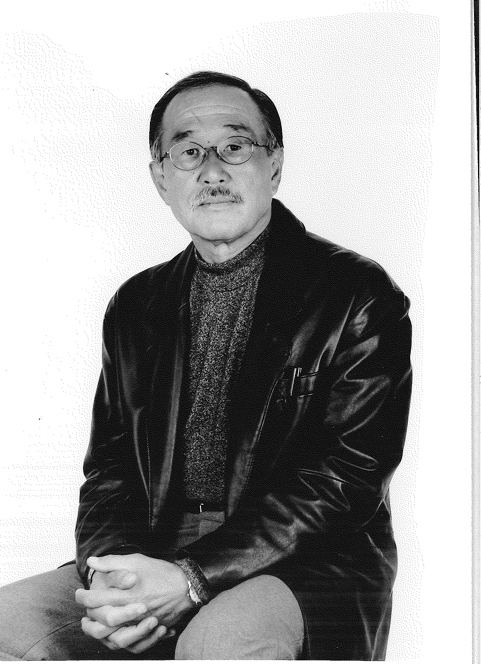The Charles Erskine Scott Wood Distinguished Writer Award is presented to an Oregon author in recognition of an enduring, substantial literary career. Past recipients of this award include Jarold Ramsey, Ralph Salisbury, Vern Rutsala, and Barry Lopez. This year, we are honored to present this award to Lawson Fusao Inada.

Lawson Fusao Inada is a poet, essayist, educator, editor, and jazz musician currently living in Ashland, Oregon. He is a third generation Japanese- American born in Fresno, CA. Inada completed his undergraduate education at Fresno State University, followed by a graduate program at the University of Iowa, and an MFA at the University of Oregon.
Due to President Roosevelt’s Executive Order 9066, Inada and his family were sent to internment camps in California, Arkansas, and Colorado through the duration of WWII (1942-1946). Drawing from this experience, Inada has been a long-time advocate of reclaiming and recording forgotten histories.
Inada is the author of five books: Before the War: Poems As They Happened (1971), Legends from Camp (1992), winner of an American Book Award, In This Great Land of Freedom (1993), Just Into/Nations (1996), and Drawing the Line (1997), winner of the Stafford/Hall Award in Poetry. Inada has also contributed to films, documentaries, and art exhibitions that delve into themes of internment, immigration, and the Japanese-American experience. In 2006, Inada was named Oregon’s fifth poet laureate.
Inada is editor and contributor of the anthologies Aiiieeeee! An Anthology of Asian American Writers (1974), The Big Aiiieeeee!: An Anthology of Chinese American and Japanese American Literature (1990), and Only What We Could Carry: The Japanese American Internment Experience (2000). These helped establish Asian American literature as a field of study.
We thank Lawson Fusao Inada not only for his contributions to literature, but for his life-long commitment to standing against injustice. Inada’s students, colleagues, and peers regard him as a generous and compassionate teacher. He writes, “In my poetry, I hold our collective experience up to the light for the audience to see. No matter how personal or individual the subject, I’m trying to shed light on the human condition for all of us.”
Here are some words from Inada’s nominators:
“I marvel at how courageously present Lawson is to the world and to the people in it. His body of work is unique in the American cannon, and his work engages our difficult history with a power that both informs and revitalizes our imaginations.” – Mary Szybist, Morgan S. Odell Professor of Humanities at Lewis & Clark College
“Anyone who has heard Lawson read his poetry as part of a jazz ensemble will recognize his fluid ability to weave words in distinctive ways. And this syncopated magic happens on the page with his work as well. His life in internment camps as a child, and then his experience as a jazz musician, join like two rivers into a body of work that is distinctly capable of welcoming readers of many persuasions.” – Kim Stafford, 2018 Oregon Poet Laureate
“Lawson Inada is a fine poet and writer… but his career goes beyond publishing and reading to advocacy and social engagement. He helps people understand they have shared identities and are all part of this country’s story— a much bigger job than writing a poem.” – Patty and Vince Wixon


